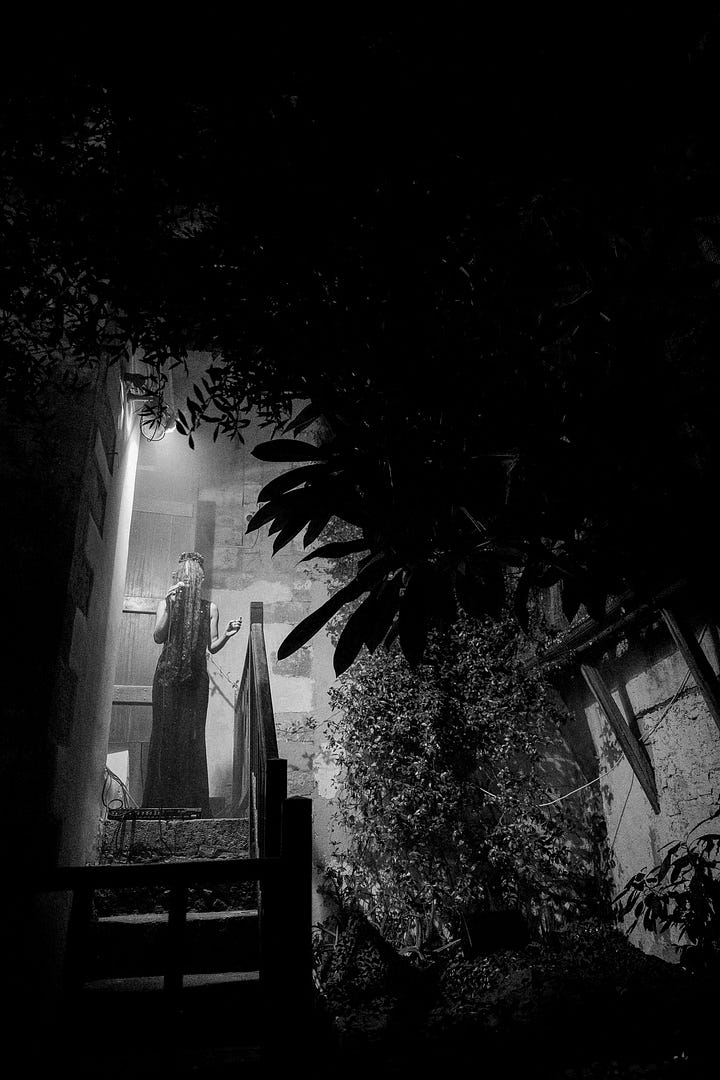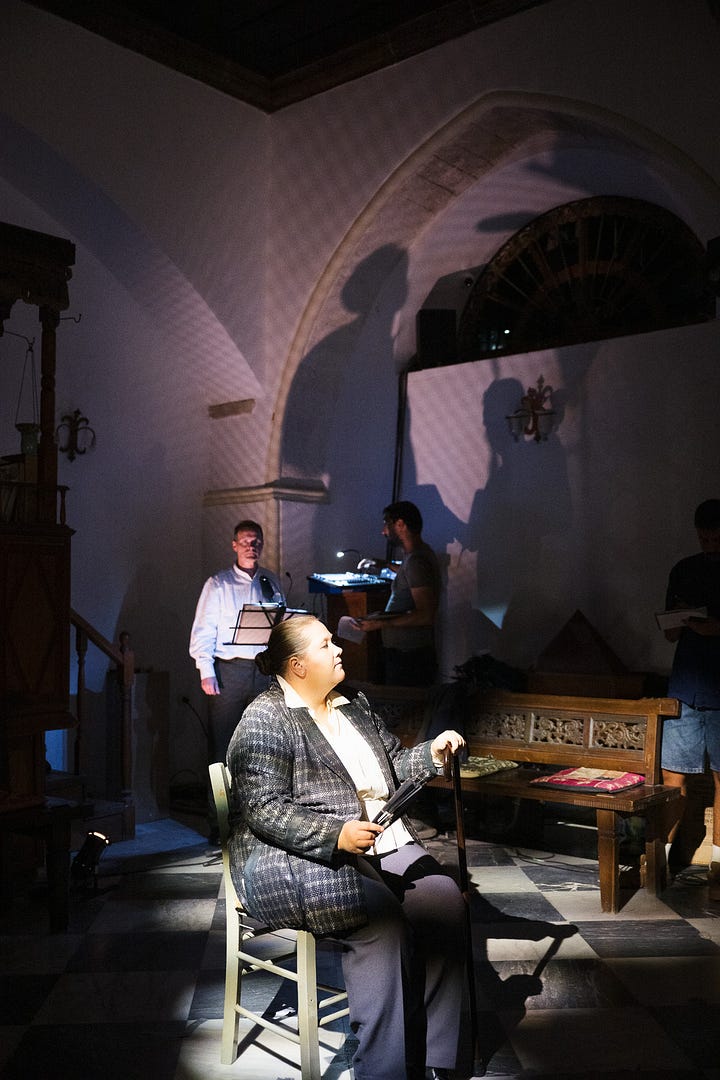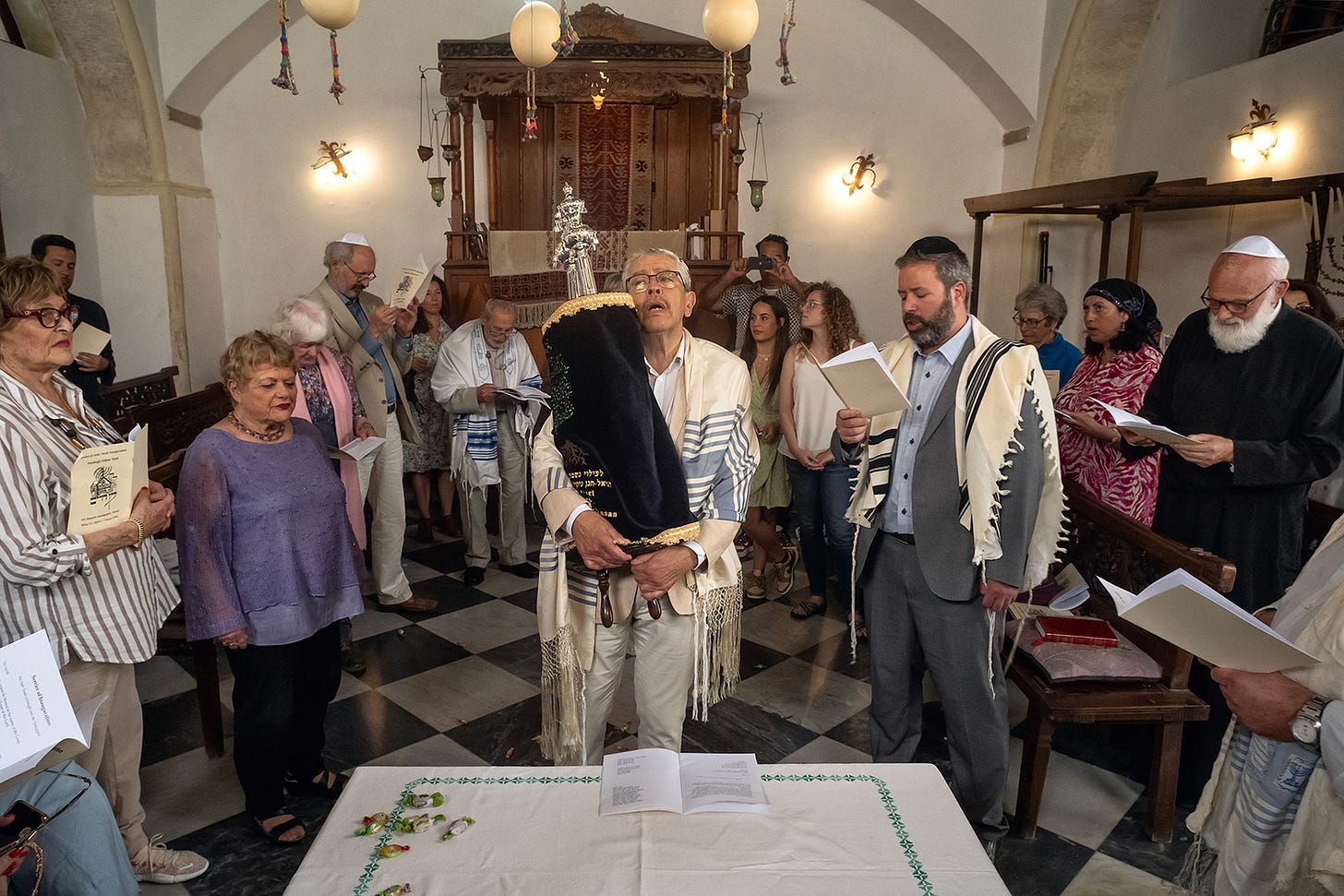Dear Friends and Supporters,
We are excited to announce the launch of Echos | הדים, our new monthly newsletter from Etz Hayyim Synagogue! Each month, you will receive this newsletter filled with reflections on the past month, including updates on the work we’ve been doing, experiences shared by our dedicated staff, and a look at the upcoming events we have planned.
Through Echos | הדים, we hope to bring you closer to the heart of our community, sharing the stories and moments that make our synagogue a unique and meaningful place. Whether it’s through the preservation of heritage, our daily life at the synagogue, or exciting new initiatives, we look forward to keeping you informed and engaged.
Thank you for being a part of this journey with us.
The Etz Hayyim Synagogue Team
We reach out to you with this first issue of Echos | הדים at a time when a community of shared values, which is Etz Hayyim’s local and international Havurah, has become ever more important. We hope to more closely connect with you as supporters of Etz Hayyim, as members of our international Havurah, as frequent or one-time former visitors, as friends of Nikos Stavroulakis, or as former volunteers.
We will share with you insights into our work and daily life at Etz Hayyim, which reflect our commitment to the values of empathy, inclusiveness, and open-mindedness.
In October, we celebrated the High Holidays with many visitors and our Visiting Rabbi Nicholas de Lange, who also led a moving ceremony in commemoration of the tragic events of October 7 and their cataclysmic aftermath. For Sukkot and Simhat Torah, rabbinical student and musician Miriam Camerini joined us and officiated a beautifully solemn and at the same time joyful Simhat Torah service.
The theatrical performance “The Shadows next to the Parasol” with a Greek-German cast and production team and a local youth choir marked the highlight of the 2024 Tanais Memorial Year during which we commemorated the loss of the Cretan Jewish community 80 years ago.
The members of the Etz Hayyim Board of Trustees came together in Hania in October as well; not only to join us for one of the “Shadows next to the Parasol” performances but also to review our activities, budget, and plans towards securing Etz Hayyim’s future.
We are grateful to you for joining us in this endeavor and your continued support. Shortly, we will bring you extensive reports on all events − and much more − in our annual magazine Jottings and as always would love to hear from you, too.
- Anja Zuckmantel
Administrative Director
Helping Hands -
Voices of Our Volunteers
As a volunteer at the Etz Hayyim Synagogue I was thrilled to be given the opportunity to attend and take part in the various Jewish holidays that took place during October 2024 – Rosh Hashanah, Yom Kippur and Sukkot. After only having been in Chania for two weeks at the beginning of Rosh Hashanah it felt exciting to be able to familiarize with the Jewish holidays, its customs and traditions.
For the Erev Rosh Hashanah, the staff of the Etz Hayyim Synagogue as well as a few community members prepared a community Seder and dinner consisting of Briam (roasted vegetables), zucchini bread, honey cake and many other delicacies. For me it was also the first time that I have witnessed the blowing of the Shofar, which was done by Dennis, one of our community members, and the Tashlikh at the harbor of Chania.
Furthermore, Yom Kippur (October 11 and 12) and Sukkot (October 16 and 17) were two fascinating holidays. I perceived Yom Kippur as touching and embracing which was likewise the response of many of the participants. Another highlight was the construction of the Sukkah, which took place on October 14 and its first use two days later during the Erev Sukkot Service. It was beautiful to get a glimpse into the community’s spirit of celebrating all together and observe the importance of those festivities to Jewish members of the community in Chania.
It granted me a deeper insight into people’s personal affiliations with the Jewish high holidays that I am genuinely thankful for.
- Elisabeth Gorek
Volunteer (Aktion Suehnezeichen Friedensdienste)
The Shadows Next to the Parasol
A Greek-German Theater Project
In our recent theater project, The Shadows Next to the Parasol, we joined hands with the Jewish Cultural Centre Ariowitsch-Haus, Leipzig, Germany, to create an impactful artistic tribute commemorating the Jewish community of Crete, tragically lost during the Second World War. This collaboration, part of the 2024 Memorial Year honoring the 80th anniversary of the Tanaïs tragedy, produced a unique performative installation and educational material, bringing powerful remembrance to Etz Hayyim. In this issue, we share reflections on the project from the project’s dramaturge.
A Sunken Story
How do you bring difficult chapters of history into the context of contemporary life so that they offer added value? That was my first thought when Jürgen Zielinski introduced me to the “Shadows next to the Parasol” project. I knew Chania, which attracts 5 million tourists a year, including many who visit the picturesque Jewish quarter of the former capital of Crete. And I also knew the tragic story of the steamer Tanaïs. What surprised me was the fact that despite to the steady stream of tourists into the former Jewish quarter, the deportation of the Jewish community had disappeared from the city’s collective memory for decades. The Etz Hayyim Synagogue has now taken the bold step of bringing this chapter back to light in an innovative way: Through an impressive performance directly at the historic site. The occasion is the 80th anniversary of the sinking of the steamer Tanaïs, in which all 300 of Crete’s Jews lost their lives − the tragic end to a story that goes back thousands of years.
It was a special honor and at the same time a great challenge for me to be commissioned with the historical research and the development of a text concept for this performance − and for the first time in the role of dramaturge. The task was clear: no reenactments, no mere retelling, but an emotional and creative reinterpretation of the events. Together with the artistic director Jürgen Zielinski, we created a unique performative collage that tells the story of the people of the Jewish quarter of Chania − not just as victims, but as neighbors, as Jews and Christians, as part of the Chaniotes. This story is conveyed in a surprising and powerful way, combining diverse theatrical devices such as choral narration, multilingual and non-verbal scenes, music and installations. The result is a dynamic and immersive staged collage that is not limited to the past, but also takes place in the present. A moving performance by a top-class Greek-German ensemble that takes the audience straight to the emotional heart of this story.
Right from the start, all performances were sold out, even overbooked − an extraordinary success. The combination of innovative staging and historical depth clearly meets the needs of many visitors. Tourists not only discover the beauty and history of the Synagogue, but also a fascinating opportunity to engage intensively with an often-overlooked chapter. At the same time, this staging offers urban society the chance to engage in a new and reflective discussion about repressed memories, tourist sites and their historical significance. Historical heritage thus becomes an opportunity for cultural and social development. I very much hope that the video documentation of the Performance can continue to contribute to this.
Many thanks to the synagogue team, especially Anja Zückmantel, Vassiliki Yakoumaki and Rabbi Nicholas de Lange for their great trust in taking this risk with us. I am convinced that it was worth it.
Andreas Eberhardt


© All photos are by Andreas Markakis
Announcement: TCZ
We are thrilled to announce that Etz Hayyim is part of the two-year Erasmus+ Training for the Contact Zone (TCZ) project, which has begun in September 2024. This initiative builds on our successful participation in the Heritage Contact Zone (HCZ) project (2018-2020), continuing our mission to innovate adult education, especially in the area of heritage education. TCZ will foster more inclusive, intercultural approaches by developing new training materials and methodologies, empowering professionals working in the culture, art, and heritage sectors to engage diverse communities and promote social inclusion.
Stay tuned for updates on the project’s progress in our upcoming newsletters, on our website, and through our social media channels as the project evolves!
Preserving Heritage:
A Call for Action
Etz Hayyim Synagogue has long stood as a beacon of Jewish history, resilience, and reconciliation. To continue its purpose and safeguard its future, we are commencing an essential expansion by acquiring two adjacent properties. These acquisitions will allow us to create more space for cultural gatherings, educational programs, and exhibitions. This expansion is vital to maintaining the synagogue’s peaceful environment and enriching its role as a center for learning and interfaith dialogue.
We need your support to make this vision a reality. Your contributions will directly support the preservation of Jewish heritage in Crete. You can donate today through our website and be part of this crucial project. Please contact us and we will gladly provide you with a more detailed project portfolio.
Additionally, we will soon be launching a crowdfunding initiative, offering even more ways to engage and contribute to this cause. Join us in ensuring that Etz Hayyim remains a sanctuary of history, culture, and peace for future generations. Together, we can secure this sacred space for years to come.
07.10.2024
Service of Remembrance and Prayers for Peace
At the first observance of our Service of Remembrance and Prayers for Peace on October 7th, Rabbi Nicholas de Lange offered powerful words of reflection and hope. We share his message with you, that it may resonate and carry forward within our community.
“The extreme violence of the unexpected attack on some twenty-four Israeli settlements, two cities, two music festivals and a beach party sent out shock waves that are still echoing through the entire middle east and indeed the world. The attack in which 1200 Israelis were killed has provoked, as we are all aware, revenge attacks and military actions that have claimed tens of thousands of mainly Arab lives, and the carnage shows no sign of ending.
In our short service today we turn our minds to all the victims of the fighting, soldiers and civilians, old and young, women and men. We pray for the repose of their souls. We also look to the future and pray for an end to the fighting in our holy land and the neighboring regions. These times a day Jews pray for peace, and these prayers have special meaning in times of war.
Our short service of readings and prayers is not about politics. The synagogue is a politics-free space. It is a space reserved for reflection on moral and spiritual values. Political discourse is by its nature divisive. Political values are temporal, relative and changing. In the synagogue we are concerned with what unites, not divides us. The moral and spiritual values of which we speak are absolute and enduring. Our synagogue is engaged in a constant quest to find common ground between people of all religions. The rabbis taught in the Mishnah: why was one man, Adam, created? So that no one can ever say to their neighbor, “My father was greater than yours”.
That is why today we remember all the dead in this ongoing conflict. As I say this I feel I hear the voice of Nikos Stavroulakis, who constantly reminded us of the indivisibility of humanity, as we are all children of the one God.
Nikos liked to remind us of the Midrash that says that after the crossing of the Red Sea, when Israel sang a song of jubilation over the total destruction of the Egyptian army, the angles in heaven wanted to sing a similar song. The Almighty silenced them saying: ‘How can you rejoice when my children are drowning?’.
I would like to mention one other Midrash, on the words of the old blind patriarch Isaac in the Book of Genesis: ‘The voice is the voice of Jacob, but the hands are the hands of Esau’. ‘Esau (the gentle nations) uses his hands, to build roads and cities and wage wars, and Jacob (Israel) uses his voice to pray to God’. Let us use our voices to pray to God, to send peace and healing to our war-torn world.
May He who makes peace in his high places make peace for us and for all Israel – and for all the world.”
Nicholas de Lange
Subscribe to Our Newsletter
Would you like to stay in touch? Subscribe to our monthly Newsletter to stay up-to-date with our on-going operation.
Next Month
In our upcoming issue of Echos | הדים, join us as we reflect on the Tanais memorial year and revisit highlights from 2024.
Support Our Work
As a nonprofit organization, we rely on your support. Discover how you can make a difference.
Questions? Contact Us!
You can reach out to us through our website, by writing us an email, or by giving us a phone call.











